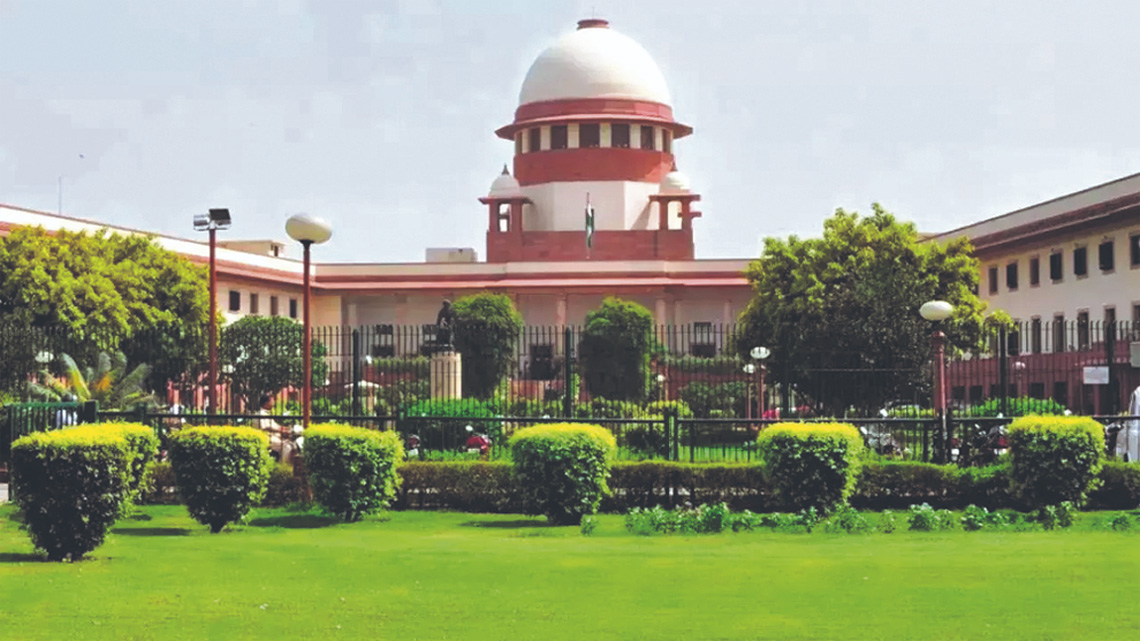

Judgment dated 4th October 2024
Cause title : VIJAY SINGH@VIJAY KR. SHARMA VS THE STATE OF BIHAR
Case No: Criminal Appeal No. 1031 of 2015, 1578 of 2017, 765 of 2017 and 1579 of 2017

A Bench of Supreme Court Justice MS. BELA M. TRIVEDI and Hon'ble Mr. Justice Mr. Justice SATISH CHANDRA SHARMA allowed the appeal filed by the accused in a kidnapping and murder case in which the High Court upheld the conviction of accused. The High Court had also reversed acquittal of two of the accused by the Trial Court and Convicted them. While acquitting the accused the Supreme Court held that:
"36. The above analysis indicates that the prosecution has failed to discharge its burden to prove the case beyond reasonable doubt. The reasonable doubts, indicated above, are irreconcilable and strike at the foundation of the prosecution's case. Thus, the appellants are liable to be acquitted of all the charges."
Facts of the case are:
On 30.08.1985, Neelam died in Simaltalla, Bihar. A written report
was lodged by the informant and brother-in-law of the deceased,
namely, Ramanand Singh wherein he alleged that Neelam was abducted
by seven persons from their house in an incident which occurred at
around 10:00 PM on the said day. On the basis of this information,
an FIR bearing no. 127 of 1985 was lodged at PS Sikandra and
investigation was commenced which led to the filing of a chargesheet
against the seven accused persons. The Trial Court charged all seven
accused persons for the commission of offences punishable under
Sections 323, 302, 364, 449, 450, 380/34 and 120-B of the Indian
Penal Code, 18602. Later, accused nos. 6 and 7 were distinctly
charged for the commission of offences punishable under Sections
342, 506 read with Section 34 of IPC. After trial, the Trial Court,
vide order dated 05.06.1992, convicted the accused persons listed as
accused nos. 1, 2, 3, 4 and 5 for the commission of offences under
Section 302/34 and 364/34 of IPC. They were acquitted of all other
charges, and accused nos. 6 and 7 were acquitted of all the charges.
The convicts preferred an appeal before the Patna High Court against
the order of conviction and the State preferred an appeal before the
High Court against the order of acquittal of the two accused
persons. The Patna High Court, vide a common judgment dated
26.03.2015, upheld the conviction of the five convicts and set aside
the acquittal of accused two accused by finding them guilty of the
commission of offences under Sections 364/34 and 302/34 of IPC.
Accordingly, they were also convicted and were sentenced to undergo
rigorous life imprisonment on each count.
The Hon'ble Supreme Court held that:
"34. Having observed that the case of the prosecution is full of
glaring doubts as regards the offence of abduction, we may briefly
note and reiterate that the offence of murder is entirely dependent
on circumstantial evidence. Although, the post mortem report
indicates that the death of the deceased was unnatural and the
commission of murder can-not be ruled out. But there is no direct
evidence on record to prove the commission of murder by the accused
per-sons. The link of causation between the accused persons and the
alleged offence is conspicuously missing. The circumstantial
evidence emanating from the facts sur-rounding the offence of
abduction, such as the testimonies of eye witnesses, has failed to
meet the test of proof and cannot be termed as proved in the eyes of
law. Therefore, the foundation of circumstantial evidence having
fallen down, no inference could be drawn from it to infer the
commission of the offence under Section 302 IPC by the accused
persons. It is trite law that in a case based on circumstantial
evidence, the chain of evidence must be complete and must give out
an inescapable conclusion of guilt. In the pre-sent case, the
prosecution case is far from meeting that standard.
35. As regards motive, we may suffice to say that motive has a
bearing only when the evidence on record is sufficient to prove the
ingredients of the offences under consideration. Without the proof
of foundational facts, the case of the prosecution cannot succeed on
the presence of motive alone. Moreover, the motive in the present
matter could operate both ways. The accused persons and the
eyewitnesses belong to the same family and the presence of a
property related dispute is evident. In a hypothetical sense, both
the sides could benefit from implicating the other. In such
circumstances, placing reliance upon motive alone could be a
double-edged sword. We say no more.
36. The above analysis indicates that the prosecution has failed to
discharge its burden to prove the case beyond reasonable doubt. The
reasonable doubts, indicated above, are irreconcilable and strike at
the foundation of the prosecution's case. Thus, the appellants are
liable to be acquitted of all the charges.
37. In light of the foregoing discussion, we hereby conclude that
the findings of conviction arrived at by the Trial Court and the
High Court are not sustainable. Moreover, the High Court erred in
reversing the acquittal of A-6 and A-7. Accordingly, the impugned
judgment as well as the judgment rendered by the Trial Court (to the
extent of conviction of A-1 to A-5) are set aside, and all seven
accused persons (appellants) are hereby acquitted of all the charges
levelled upon them. The appellants are directed to be released
forthwith, if lying in custody."
Download Judgment dated 4th October 2024 in VIJAY SINGH@VIJAY KR. SHARMA VS THE STATE OF BIHAR, Case No: Criminal Appeal No. 1031 of 2015, 1578 of 2017, 765 of 2017 and 1579 of 2017.